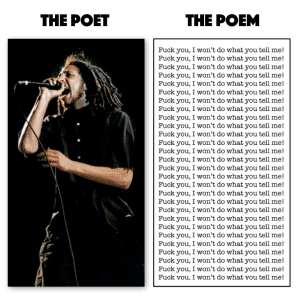
Unfortunately or fortunately (depending on your point of view), there is no magic formula for writing the perfect song and, in fact, we often come across writing and songwriting errors that can significantly slow down the creative development of a song. By keeping a few basic considerations in mind, you can make writing songs much easier. Everyone has the potential to be a good songwriter!
1. If you are looking for a hit, avoid writing long songs
Sometimes we try to explain too many things in a single song, resulting in a song that is too long. Nowadays, less and less people listen to songs that are more than 4 minutes long because the human attention span is (unfortunately) getting shorter, especially among young people. A commercially viable song is between 2:30 and 3:50 minutes on average.

2. Keep it implicit
When writing the lyrics of a song, always keep in mind that whatever subject you want to touch on, you have to tell a story that is stimulating and at the same time does not reveal too much. Do not reveal the meaning completely, instead, let the audience interpret. The words you choose have to be able to convey a feeling or emotion and an indirect connection to something specific. This often makes more people relate.

3. Avoid confusion of structure and melodic line
A tendency can be observed among emerging artists that the transitions from one chord to another and the cadences are not sufficiently defined. In this way, the expectations of the listeners are not fulfilled; Without a clear focus, even the most powerful song in the world goes to waste. If there is a lack of coherence in the melody and harmony, this is not only noticed by the musicians but also by the listeners.
4. The secret to keeping attention
Hitting the first few notes of a song in a catchy or original way means you’ve done a good portion of the work. In the vast majority of cases, only small parts of a song are remembered, the hooks. This means that if the “bait” is good enough, the audience will bite. From around the hook, it is up to you to build a song, one that will keep the attention of your listeners and not disappoint them.
5. Do not disappoint with expectations
The music thrives on variety, textures, highlights… Listeners tend to be particularly involved in the chorus. You should also use different harmonies in the chorus, or go to a different key by adding choruses or other instruments. Remember that the song should explode in the chorus: that’s what listeners expect.
6. Don’t forget the bridge!
Your most important task when writing a song is to hold the listener’s attention at all times. After the second chorus it’s easy to lose the audience’s attention. The magic lies in alternating intensities, tension and relaxation. The best way to loosen the reins of concentration is on the so-called “bridge.” A brief departure from the structure of the song, while at the same time magically connecting it with the remaining parts. In a way, the bridge is an extremely effective psychological-musical trick.
7. Speaking of dynamics
As we have already said, the change of intensities is essential for the song to be interesting. In this sense, the term “dynamic” is often used, which refers not only to the variety of volumes that a piece presents, but also to how a piece should develop in the different sections. The structure of a theme is defined not only by the text and by the rhythmic or melodic changes, but also by the intensity of the performance and the choice of crescendo.

8. Write down ideas: very important
The best ideas are always spontaneous. They appear at random times, not in the studio, not when you’re focused on working on it. Sometimes they are brilliant ideas, but if we don’t write them down, it’s easy for them to disappear forever. You have to leave a record of any ideas that suddenly come to you; write or record any idea, now with smartphones it’s easier than ever. No matter how important it seems at the time, it can end up taking on a lot more relevance than you thought.
9. Write, write and write
The ideal to continue improving as a composer is to write, write and write. It’s like anything you want to learn: if you don’t practice enough you’ll never learn a foreign language. Sure, it may sound corny now, but the point is simple: the only way to get better as a songwriter is to write songs. Even if it’s just failed pieces, which at most will end up straight in the bin, they’ll somehow take your skills to the next level: practice makes perfect.
You are currently viewing a placeholder content from Youtube. To access the actual content, click the button below. Please note that doing so will share data with third-party providers.
Most importantly: Be yourself
Of course, all of the above are only suggestions. Most importantly: be yourself, make music that you love and chances are that other people will too! Happy songwriting!
4 comments
Leave a Reply
You are currently viewing a placeholder content from Facebook. To access the actual content, click the button below. Please note that doing so will share data with third-party providers.
More InformationYou are currently viewing a placeholder content from Instagram. To access the actual content, click the button below. Please note that doing so will share data with third-party providers.
More InformationYou are currently viewing a placeholder content from X. To access the actual content, click the button below. Please note that doing so will share data with third-party providers.
More Information





Dimitris Papageorgiou says:
Useful, simple, thanks.
HerrMano says:
Very nice. Thanks
Pax says:
May I have your permission to share this web address with my songwriting Buddies?
So well thought out and inciteful!!
Thank you!
https://www.thomann.de/blog/en/songwriting-10-common-mistakes-and-how-to-avoid-them/#
Larry says:
Hi Pax, of course, you can share the web address with your songwriting buddies – I’m glad you found it helpful!